기뻐 하며 왕께 노래 부르리
그 중에서도, 기쁨을 표현하는 한 가지 방법이 노래입니다. 노래는 매우 강력한 의미를 담고 있으며, 긍정적인 메시지를 전달하는 동시에 우리를 삶의 일상적인 스트레스와 고통으로부터 벗어나게 합니다. 기쁨의 의미와 중요성, 왕께 부르는 노래의 역할과 의미, 그리고 노래에서 전하는 가치에 대해 살펴보겠습니다.
기쁨의 의미와 중요성
기쁨은 긍정적인 생각과 감정, 할머니의 감사함, 다른 사람들에게 헌신, 그리고 노력에 대한 보상입니다. 우리는 기쁨의 순간을 바라기 시작하며, 그 순간을 즐기기 위해 노력합니다.
기쁨은 우리의 정신적, 신체적, 그리고 사회적 건강에 긍정적인 영향을 미칩니다. 우리가 기쁨으로 가득 차면, 우리의 행동과 태도는 긍정적으로 변합니다. 우리는 보다 창의적이고 생산적이며, 우리가 이루는 모든 것에 대한 보상이 됩니다.
우리의 정신적 건강에도 모두 긍정적인 영향을 미칩니다. 우리가 기쁨으로 가득 찬 삶을 살면, 그 모습에 스스로와 다른 사람들에게 가치를 더합니다. 긍정적인 태도와 메시지를 전달하게 됩니다. 이러한 태도는 우리의 관계와 친밀한 인간관계를 강화시켜주며, 더욱 높은 수준에서 삶을 즐길 수 있게 합니다.
왕께 노래 부르는 의미와 역할
왕께 노래를 부르는 것은 우리 문화와 전통에서 중요한 역할을 합니다. 이것은 경의를 표시하는 것에 더해, 우리가 대상에게 더욱 다가갈 수 있는 기회를 제공합니다. 음악은 감정적인 효과를 주며, 이것은 좋은 음악을 비롯한 좋은 노래의 예술적 가치를 보여줍니다.
왕께서 제공하는 것은 주변에 있는 모든 사람들에게 미치는 영향력의 크기입니다. 그들은 사회구성원에게 존경과 경의를 보일 수 있는 존재입니다. 그들에 대한 경의의 표시는 단순한 예의보다 더 큰 의미를 지니며, 깊은 존경과 성찰, 그리고 경의를 보여준다는 것입니다.
노래를 통해 전하는 감사의 뜻
감사의 노래는 우리가 경험한 이상적인 감정의 한 부분입니다. 그것은 기쁨과 평온, 그리고 만족감을 전달합니다. 노래는 감사와 감정의 일관성에 초점을 맞추며, 우리 모두가 일상적인 것을 즐기도록 돕습니다. 노래와 음악은 가치있는 경험을 할 수 있도록 돕습니다.
기쁨을 북돋는 노래들
기쁨을 북돋는 노래들은 우리가 힘들고 스트레스가 많아지는 상황에서 우리를 도와줄 수 있습니다. 우리의 분위기를 바꾸는 동시에 시간과 상황에 따라 우리를 위로하는 효과를 가져옵니다.
이러한 노래들은 다양한 분위기와 상황에 따라 끊임없이 바뀌는 인생에서 유용할 수 있습니다. 그것들은 사람들이 더 행복하게 생각하는 데 도움을 줄 수 있으며, 그들이 자신의 가능성을 알 수 있도록 돕습니다. 따라서 기쁨을 공유하고 갈등을 해결하는 것이 더욱 중요해집니다.
노래를 통해 전하는 소통의 가치
노래는 문화적인 혼란과 감정의 표현을 보다 체계적으로 전달할 수 있는 효과적인 방법입니다. 이것은 각기 다른 사람들이 서로 다른 언어와 문화를 가지고, 서로 다른 방식으로 상호작용할 수 있도록 합니다. 이러한 상호작용은 전체적인 맥락에서 가치가 있으며, 서로 이해하는 방법에 대한 배려와 이해가 생기도록 해줍니다.
송가와 민요는 우리에게 효과적인 소통의 예를 보여줍니다. 그것들은 우리에게 통조림과 이것에 대한 본질적인 가치에 대한 깊은 이해를 가져옵니다. 우리가 서로 이해할 때, 우리는 서로를 존중하고 끊임없이 도움을 주려고 노력하게 됩니다.
노래를 통해 전하는 문화적 가치
노래는 우리의 문화적 표현에 매우 중요한 역할을 합니다. 그것은 우리의 역사와 전통을 전하며, 그것을 통해 우리는 우리 자신의 값과 미개척된 잠재력을 찾게 됩니다. 이러한 문화적 인식은 삶의 다양한 측면에서 우리 삶의 의미와 가치를 결정할 때 중요한 역할을 합니다.
하나의 예는 기뻐하며 왕께 기쁨을 전달해주는 노래입니다. 이것은 우리가 자신의 지갑과 다른 사람에게 미치는 영향력에 대해 생각하게 하며, 그것을 전할 수 있는 적극적인 방법으로 작용합니다. 이러한 노래는 한국 문화에서 매우 중요하며, 우리의 가치와 역사를 전할 뿐만 아니라, 우리와 다른 문화들 사이의 인터렉션에서 좋은 관계를 형성할 수 있는 기회를 제공합니다.
기쁨으로 채운 노래, 함께 나누는 기쁨의 가치
노래는 여러 가지 이유로 매우 힘든 상황에서도 기쁨으로 가득 차도록 도와줍니다. 그것은 우리가 나와 우리 주변의 상황을 바라보는 관점을 변경할 수 있게 하며, 긍정적인 관점과 감정에서 우리를 빠르게 회복시켜 줍니다.
더불어, 함께 나누는 기쁨의 가치는 노래뿐만 아니라, 모든 것에도 존재합니다. 기쁨을 함께 나누면 우리는 서로를 이해하고 강화할 수 있습니다. 이것은 더불어 살기 위한 모든 것들에 대해서도 마찬가지입니다. 더 많이 나누고, 더 많이 배우고, 더 많이 알아가며, 우리는 삶과 사람들에 대한 감사와 소통을 가집니다.
FAQs
Q. 왕께 노래 부르는 것이 왜 중요한가요?
왕께 노래를 부르는 것은 우리 문화와 전통에서 중요한 역할을 합니다. 이것은 경의를 표시하는 것에 더해, 우리가 대상에게 더욱 다가갈 수 있는 기회를 제공합니다. 음악은 감정적인 효과를 주며, 이것은 좋은 음악을 비롯한 좋은 노래의 예술적 가치를 보여줍니다.
Q. 노래는 왜 표현 수단으로 자주 이용되나요?
노래는 우리가 다양한 상황에서 우리의 감정을 표현하는 데 매우 유용합니다. 노래를 통해 우리는 우리가 느끼는 감정을 수월하게 전달할 수 있습니다. 또한, 우리가 노래를 부르면서, 우리의 감정은 더욱 강해집니다. 따라서, 노래는 감정 표현에 매우 효과적인 수단입니다.
Q. 노래를 통해 전하는 소통의 가치는 무엇인가요?
노래는 문화적인 혼란과 감정의 표현을 보다 체계적으로 전달할 수 있는 효과적인 방법입니다. 이것은 각기 다른 사람들이 서로 다른 언어와 문화를 가지고, 서로 다른 방식으로 상호작용할 수 있도록 합니다. 이러한 상호작용은 전체적인 맥락에서 가치가 있으며, 서로 이해하는 방법에 대한 배려와 이해가 생기도록 해줍니다.
사용자가 검색한 키워드: 기뻐 하며 왕께 노래 부르리 기뻐하며 왕께 f, 기뻐하며 경배하세, 기뻐하며 왕께 악보, 기뻐하며 왕께 g
Categories: Top 55 기뻐 하며 왕께 노래 부르리
마커스워십 – 기뻐하며 왕께 (심종호 인도) Shout for His joy and sing
여기에서 자세히 보기: future-user.com
기뻐하며 왕께 f
Plot Summary
기뻐하며 왕께 revolves around the story of a young king named Lee Hun (played by Yeo Jin-goo) who ascends the throne at a young age after his father’s sudden death. Despite his royal status, Lee Hun is ignorant and lacks knowledge on how to govern his kingdom. To remedy this, the queen dowager (played by Kim So-hyun) appoints a court lady named Hong Ra-on (played by Kim Yoo-jung) to be the king’s tutor. However, there is a catch – Hong Ra-on is not an ordinary court lady but a woman disguised as a man to survive in a patriarchal society.
As Ra-on teaches the king about history, politics, and ethics, she tries to keep her true identity a secret. Along the way, Ra-on earns the trust and friendship of the young king, but their relationship is hindered by political intrigue and familial conflicts. Ra-on also finds herself caught in a love triangle with the king and his childhood friend Kim Yoon-sung (played by Jinyoung).
As the story unfolds, Ra-on and Lee Hun face numerous challenges that test their loyalty, courage, and love. The drama concludes with a climactic ending that leaves viewers emotional and satisfied.
Characters
The characters in 기뻐하며 왕께 are diverse and well-developed. Kim Yoo-jung as Hong Ra-on shines in her portrayal of a witty, kind-hearted, and resilient heroine who defies gender norms and fights for justice. Yeo Jin-goo as Lee Hun is equally impressive as a young king struggling to balance his duties as a ruler and his desire for friendship and freedom.
Other notable characters include Kim So-hyun as the queen dowager, who is torn between her love for her son and her loyalty to the royal family, and Jinyoung as Kim Yoon-sung, the king’s childhood friend who harbours a secret identity and feelings for Ra-on.
Themes
One of the main themes of 기뻐하며 왕께 is identity. The drama explores how individuals are perceived and treated by society based on their gender, class, and status. Ra-on’s decision to dress as a man underscores the limitations placed on women in Joseon-era Korea, and her struggle to balance her dual identity highlights the complexities of self-expression and social conformity.
Another theme is love and loyalty. The drama showcases different types of love, including romantic love, familial love, and friendship. It also probes into the loyalty that individuals owe to their country, their family, and themselves, and the dilemmas that arise when those loyalties clash.
FAQs
Q: Is 기뻐하며 왕께 based on a true story?
A: No, the drama is a fictional story set in the Joseon era of Korea.
Q: Is 기뻐하며 왕께 available on Netflix?
A: Yes, the drama is available on Netflix in select regions.
Q: How many episodes are there in 기뻐하며 왕께?
A: The drama has a total of 18 episodes.
Q: Is there a sequel to 기뻐하며 왕께?
A: No, there is no official sequel to the drama, but fans have been clamouring for one.
Q: Who sings the theme song for 기뻐하며 왕께?
A: The theme song is titled “If I Leave” and is performed by Yoon Mi-rae.
Conclusion
기뻐하며 왕께 is a remarkable drama that blends romance, politics, and history into a compelling story. With its talented cast, stunning visuals, and poignant themes, this drama is sure to capture the hearts of viewers both in Korea and abroad.
기뻐하며 경배하세
The Meaning of 기뻐하며 경배하세
The phrase 기뻐하며 경배하세 consists of two Korean words; ‘기뻐하다’ and ‘경배하다.’ 기뻐하다 means to rejoice, be glad, or feel happiness while 경배하다 means to worship, adore, and bow down with reverence. Therefore, the phrase 기뻐하며 경배하세 can be translated as “Let’s rejoice and worship” or “Rejoice while worshipping.”
The phrase is often used in religious contexts, especially in Christianity. Many Christians use 기뻐하며 경배하세 to express their joy and gratitude towards God during prayers, songs, and other worship activities. The phrase is also commonly used in daily conversations among Christians as a way to remind each other of God’s goodness and to express their faith.
Usage of 기뻐하며 경배하세
The phrase 기뻐하며 경배하세 is used in various ways, including:
In Prayers: During prayers, Christians often use 기뻐하며 경배하세 in their opening and closing statements. By doing so, they are acknowledging God’s sovereignty and expressing their worship and adoration towards Him.
In Songs: Christian hymns and songs often include 기뻐하며 경배하세 in their lyrics. These songs are used to celebrate God’s goodness, and to express gratitude and worship towards Him.
In Daily Conversations: Christians often use 기뻐하며 경배하세 in their conversations as well. They may use it to encourage each other or to remind themselves of God’s goodness. For instance, they may say something like, “기뻐하며 경배하세, 우리 하나님은 언제나 우리 옆에 계셔” (Let’s rejoice and worship, our God is always with us) to encourage their fellow Christian.
In Religious Services: 기뻐하며 경배하세 is also used in various religious services, including Sunday services, worship nights, prayer meetings, and other church events. During these events, Christians come together to worship God and express their faith through prayers, songs, and other activities.
The Significance of 기뻐하며 경배하세 in Korean Culture
기뻐하며 경배하세 is not only a religious phrase but also an integral part of the Korean culture. Koreans have a long history of expressing their gratitude and respect towards their ancestors, leaders, and elders. This cultural disposition extends to their religious beliefs as well.
In Korea, Buddhism and Confucianism have significant influence, and their values emphasize respect, humility, and gratitude. Buddhism focuses on inner peace and mindfulness, while Confucianism emphasizes social harmony and respect for elders. Therefore, the Korean culture views 기뻐하며 경배하세 as a way to show respect and thankfulness to a higher power, whether it is God or ancestors.
The concept of 기쁨 (joy) is also integral to the Korean culture. Koreans have a vested interest in experiencing joy in their daily lives, and it is evident in their festivals, gatherings, and food culture. Koreans believe that experiencing joy and happiness are essential to a healthy and balanced lifestyle. Therefore, the idea of 기뻐하며 경배하세 is widespread among Koreans, as it combines joy and worship, two concepts that hold immense importance in Korean culture.
FAQs
1. Is 기뻐하며 경배하세 only used among Christians in Korea?
Although 기뻐하며 경배하세 is commonly used in Christian circles, it is not limited to Christians. The phrase has become an integral part of the Korean culture, and it is not uncommon to hear it being used in non-Christian settings as well.
2. Are there any specific situations where 기뻐하며 경배하세 should be used?
기뻐하며 경배하세 can be used in various situations where gratitude and worship are appropriate. In religious contexts, it is often used during prayers and worship. In everyday conversations, it can be used to express gratitude towards a friend or family member or to encourage them. In cultural events, it can be used to show gratitude towards ancestors or leaders.
3. Is 기뻐하며 경배하세 an outdated phrase?
No, 기뻐하며 경배하세 is still widely used in Korean society and continues to hold significant religious and cultural importance.
Conclusion
기뻐하며 경배하세 is a phrase that encapsulates the values of Korean culture and Christianity. It emphasizes the importance of joy and worship, indicating a deep respect for God, ancestors, and leaders. The phrase has found its way into everyday use, becoming an integral part of Korean language and culture. Whether it is used in religious contexts or daily conversations, 기뻐하며 경배하세 represents a sentiment of gratitude and reverence, highlighting the essence of Korean identity and values.
주제와 관련된 이미지 기뻐 하며 왕께 노래 부르리

기뻐 하며 왕께 노래 부르리 주제와 관련된 이미지 35개를 찾았습니다.

![악보] 기뻐하며 왕께 노래 부르리 : 네이버 블로그 악보] 기뻐하며 왕께 노래 부르리 : 네이버 블로그](https://mblogthumb-phinf.pstatic.net/MjAyMTExMTZfMTk0/MDAxNjM3MDY3OTY0NDMy.CGzKy1fd1Da2VkT7y19i4wbkN1aT8J0Fe-tSYRcfEF4g.n83zMRws-ufDoV3EQ_6QJYdwv3wxK1dUDD2fzBpBI38g.PNG.joseph1040/%EA%B8%B0%EB%BB%90%ED%95%98%EB%A9%B0%EC%99%95%EA%BB%98%EB%85%B8%EB%9E%98%EB%B6%80%EB%A5%B4%EB%A6%AC.png?type=w800)

-1.png?type=w800)
![피아노반주법] 기뻐하며 왕께 노래부르리(악보/가사) : 네이버 블로그 피아노반주법] 기뻐하며 왕께 노래부르리(악보/가사) : 네이버 블로그](https://mblogthumb-phinf.pstatic.net/20140228_177/bbbchrist_1393575381614cifY9_JPEG/%B1%E2%BB%B5%C7%CF%B8%E7%BF%D5%B2%B2%B3%EB%B7%A1%BA%CE%B8%A3%B8%AE.jpg?type=w420)
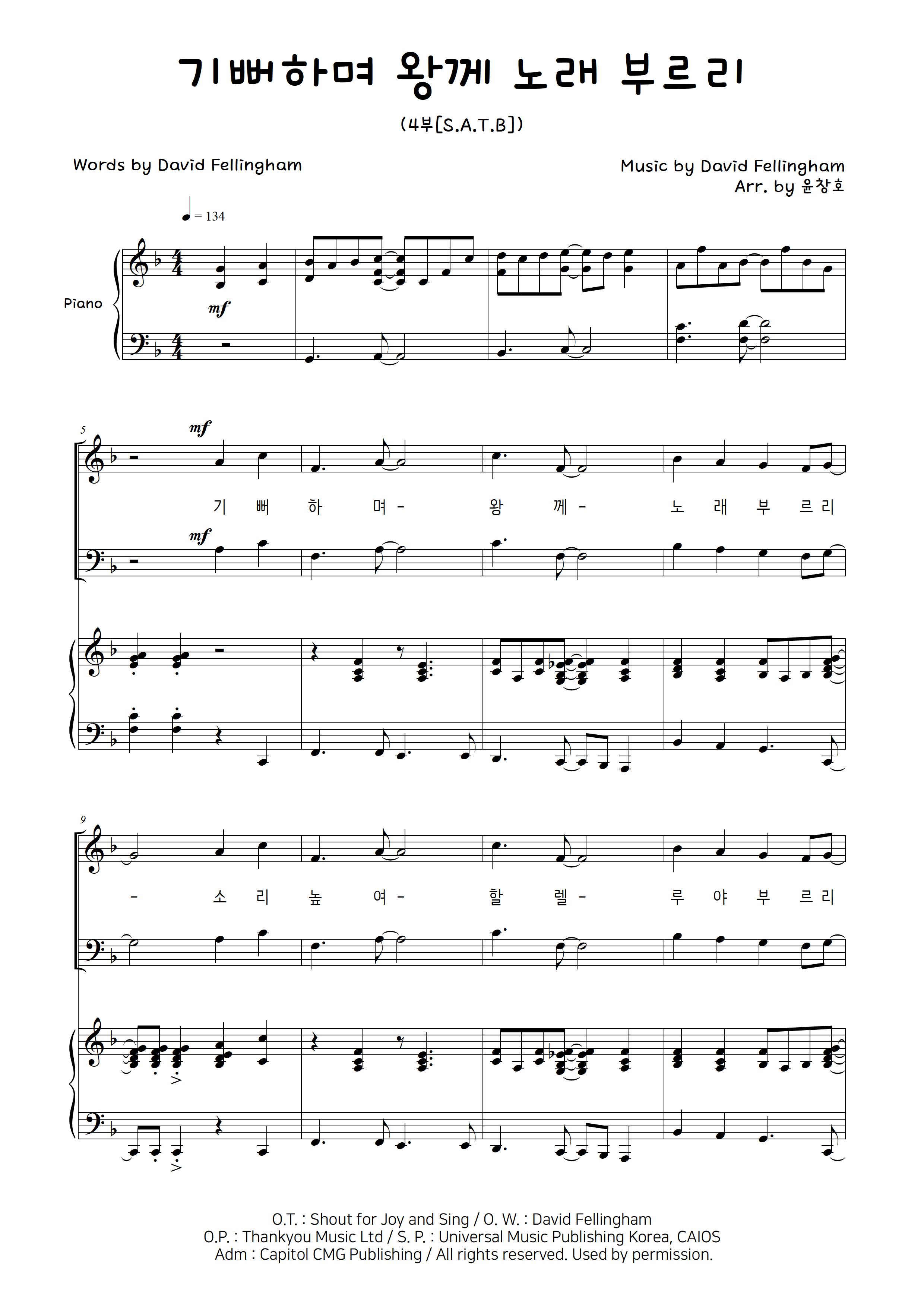
-1.png?type=w800)

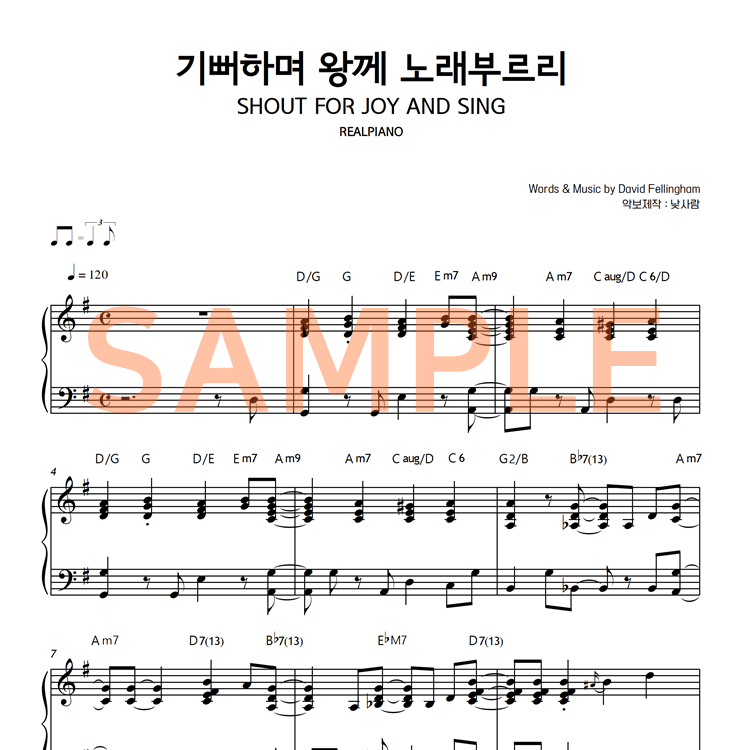

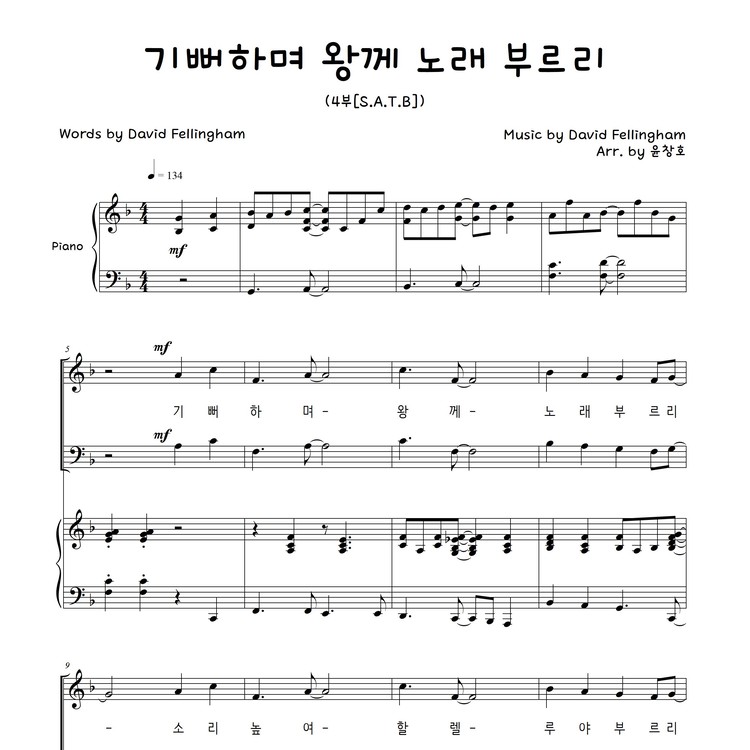
-1.png?type=w800)
![[나비워십] 기뻐하며 왕께 노래 부르리 - YouTube [나비워십] 기뻐하며 왕께 노래 부르리 - Youtube](https://i.ytimg.com/vi/BjYPFqxKBzE/sddefault.jpg)

-1.png?type=w800)







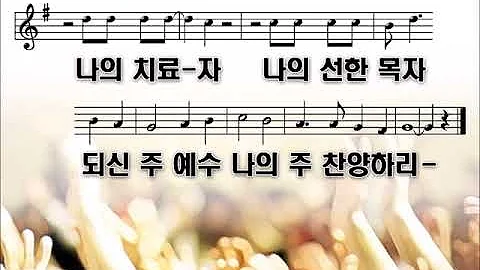


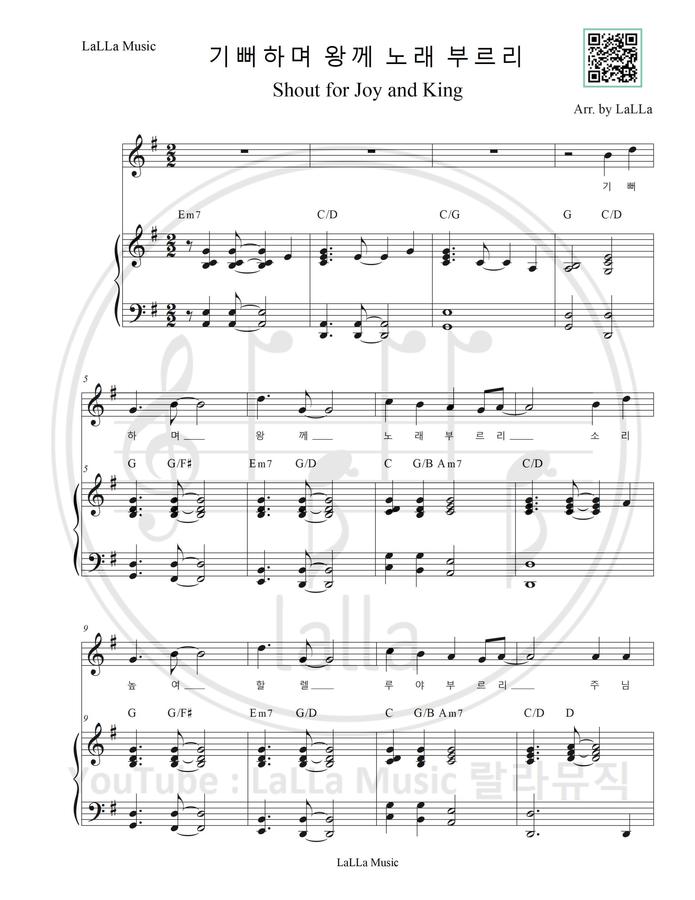













Article link: 기뻐 하며 왕께 노래 부르리.
주제에 대해 자세히 알아보기 기뻐 하며 왕께 노래 부르리.